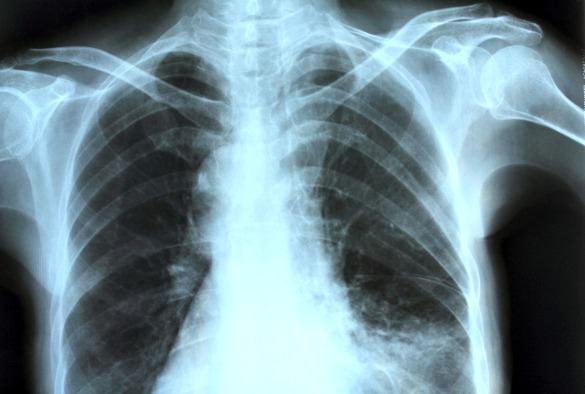A collaboration of international research teams, including the University’s Institute of Translational Medicine, has been awarded in excess of £9m ($12.1m) to advance the precision diagnosis and treatment of lung cancer.
The team, led by Dartmouth College (New Hampshire, USA), was awarded the five-year grant from the National Institutes of Health.
The team is planning to undertake three related projects using the funding.
Genomic variants
In the first, they will analyse lung samples to identify differences in the genetic make-up (genotype) of an individual by examining their DNA sequence. This is to isolate genomic variants (ie SNPs) that affect cancer risk through genetic factors and environmental exposures.
In the second, the investigators aim to evaluate a range of biomarkers that have been implicated in lung cancer risk and apply validated biomarkers to risk prediction models.
In the last project, the scientists will develop an integrated risk prediction model based on lung cancer computed tomography (CT) screening populations in the United States, Canada, and Europe (including the UK lung cancer screening trial undertaken in the UK), combining personal health and exposure history with targeted molecular and genomic profiles and lung function data. This effort also aims to establish nodule assessment models for individuals qualified by the probability models.
LLP and UKLS
Samples taken from the major Liverpool Lung Project (LLP), funded by the Roy Castle Foundation, and the UK Lung Cancer Screening trial (UKLS) will be used in this study.
The LLP includes one of the largest collections of data and samples in the UK and Europe from a population cohort at high risk of lung cancer (approximately 9000 individuals from the Liverpool area, recruited whilst healthy 1996 – 2014).
UKLS was undertaken in partnership between the University of Liverpool, Liverpool Heart & Chest Hospital, Papworth Hospital and the Royal Brompton Hospital with the aim of highlighting the need for a screening programme to help benefit people who are at risk of developing lung cancer.
This research funding relates to and greatly extends the team’s recently published Nature Genetics paper.
The paper details the results of a huge study that identified several new variants for lung cancer risk that will translate into improved understanding of the mechanisms involved in lung cancer risk.
Enhancing understanding
Professor John Field, Clinical Professor of Molecular Oncology, Chief Investigator of the UKLS and Principal Investigator of the LLP, said: “Lung cancer continues to be the leading cause of cancer mortality worldwide.
“This funding will help us to further develop the most effective ways of diagnosing and treating this terrible disease. Furthermore it will provide forefront knowledge on the way we should implement lung cancer CT screening internationally”.
Principal investigator of the NIH grant, Christopher Amos, said: “The goal is to enhance our understanding of gene-environment interactions in lung cancer etiology and to move the observations about risk for lung cancer towards translation.
“With this grant funding, the team particularly aims to more precisely target lung cancer screening to reduce its burden and improve the yield of detection for early lung cancer.”
The collaboration will include investigators from the World Health Organization’s International Agency for Research in Cancer, the University of Toronto, and the Harvard School of Public Health.
The grant begins on August 1 and runs until May 31, 2022.
